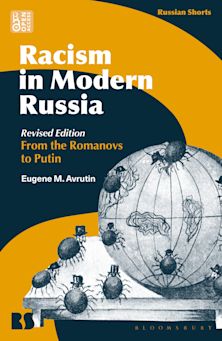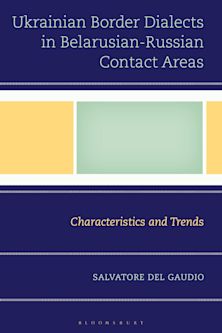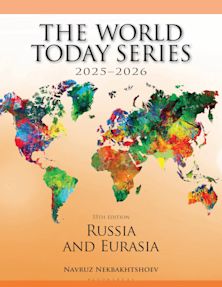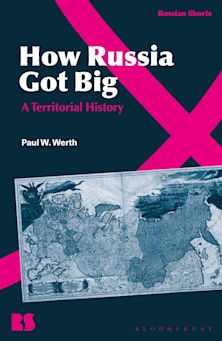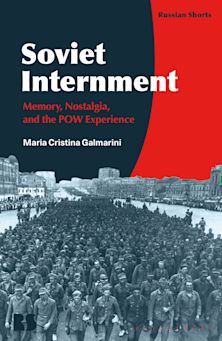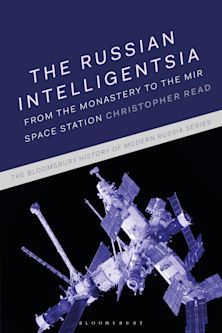- Home
- ACADEMIC
- History
- Russian History
- The Politics of Local Government in Russia
The Politics of Local Government in Russia
Alfred B. Evans Jr. (Anthology Editor) , Vladimir Gel'man (Anthology Editor) , Michael Brie (Contributor) , Kimitaka Matsuzato (Contributor) , Thomas S. Pearson (Contributor) , Thomas Porter (Contributor) , Scott Seregny (Contributor) , Darrell Slider (Contributor) , John Webb (Contributor) , Hellmut Wollmann (Contributor) , John F. Young (Contributor)
The Politics of Local Government in Russia
Alfred B. Evans Jr. (Anthology Editor) , Vladimir Gel'man (Anthology Editor) , Michael Brie (Contributor) , Kimitaka Matsuzato (Contributor) , Thomas S. Pearson (Contributor) , Thomas Porter (Contributor) , Scott Seregny (Contributor) , Darrell Slider (Contributor) , John Webb (Contributor) , Hellmut Wollmann (Contributor) , John F. Young (Contributor)
This product is usually dispatched within 1 week
- Delivery and returns info
-
Free CA delivery on orders $40 or over
You must sign in to add this item to your wishlist. Please sign in or create an account
Description
According to the Constitution of the Russian Federation, adopted in 1993, local autonomy is one of the fundamental principles of the constitutional system. The Politics of Local Government in Russia aims to provide a dedicated and comprehensive discussion of the pursuit of local self-government in contemporary Russia where "local" refers to the third tier of government beyond federal and regional governments. Some of the ablest scholars in the field focus on the existing institutional and social climate for municipal and district level government in Russia while placing recent reforms in a comparative and historical perspective.
Table of Contents
Chapter 2 The Politics of Local Government in Russia: A Framework for Analysis
Part 3 Part II: Historical Roots
Chapter 4 The Zemstvo Reconsidered
Chapter 5 Ministerial Conflict and the Politics of Zemstvo Reform, 1864-1905
Chapter 6 Contemporary Russian Scholars' Changing Views on Local Government in Late Tsarist Russia
Part 7 Part III: Local Government and Post-Soviet Politics
Chapter 8 Federal Politics Toward Local Government in Russia: The Process of Institution-Building
Chapter 9 Institution Building of Local Self-Government in Russia: Between Legal Design and Power Politics
Chapter 10 Local Budgets and Intergovernmental Finance in the Russian Federation
Part 11 Part IV: Local Government in Russia's Regions
Chapter 12 Governors vs. Mayors: The Regional Dimension of Russian Local Government
Chapter 13 Regional Politics and Municipal Building: The Reshuffling of Local Chief Administrators in Russia, 1990-1996
Chapter 14 The Moscow Political Regime: The Emergence of a New Urban Political Machine?
Chapter 15 Energy Development and Local Government in Western Siberia
Part 16 Part V: Conclusion
Chapter 17 Toward a New Politics of Local Government in Russia
Product details
| Published | Jun 03 2004 |
|---|---|
| Format | Hardback |
| Edition | 1st |
| Extent | 308 |
| ISBN | 9780742524798 |
| Imprint | Rowman & Littlefield Publishers |
| Dimensions | 234 x 165 mm |
| Publisher | Bloomsbury Publishing |
About the contributors
Reviews
-
The essays in this volume start with the understanding that the project of post-Soviet municipal reform in Russia has failed. There is a sharp contrast between the stated principles of local autonomy and democracy and the realities of impoverished municipalities with ruling 'political machines' in Russia. The individual papers explore two dimensions of this failure. Three essays focus on the possibility of building local politics based on the past experience of the tsarist local government reforms of thelate 19th century. Seven essays focus on various aspects of local government in contemporary Russia: the role of the central and regional governments in limiting the development of local autonomy and democratization; local budget crises caused by transferof responsibilities from higher levels of government and enterprises, without an appropriate tax base; the unique challenges in local government in 'company towns;' the special case of Moscow. A concluding chapter describes Vladimir Putin's proposed reforms of local government and assesses their potential impact, concluding that the degree of independence of local governments will decrease as the national executive leadership consolidates its control over the hierarchy of administration. Recommended. Upp
D. V. Schwartz, University of Toronto, Choice Reviews
-
The Politics of Local Government in Russia is a valuable contribution to the study of contemporary Russian politics.
Bryon J. Moraski, University of Florida
-
The fundamental question driving The Politics of Local Government in Russia is 'Why have ideas of local autonomy and local democracy…failed to take root successfully in Russian soil?' The editors bring together a number of esteemed scholars to answer this question, each of whom delve into different pieces of the puzzle. . . . A valuable contribution to the study of contemporary Russian politics. Its focus on how local governments evolve in a post-authoritarian context also makes it important to the broader field of comparative democratization.
Bryon J. Moraski, University of Florida, The Russian Review
-
The Politics of Local Government in Russia makes a positive contribution to the understanding of this multi-dimensional subject and is necessary reading for scholars of Russian local government.(
W. T. Westwater, University of Birmingham, Seer
-
A timely and useful addition to the market.
Derek S. Hutcheson, Europe-Asia Studies
-
The essays in this volume start with the understanding that the project of post-Soviet municipal reform in Russia has failed. There is a sharp contrast between the stated principles of local autonomy and democracy and the realities of impoverished municipalities with ruling 'political machines' in Russia. The individual papers explore two dimensions of this failure. Three essays focus on the possibility of building local politics based on the past experience of the tsarist local government reforms of the late 19th century. Seven essays focus on various aspects of local government in contemporary Russia: the role of the central and regional governments in limiting the development of local autonomy and democratization; local budget crises caused by transfer of responsibilities from higher levels of government and enterprises, without an appropriate tax base; the unique challenges in local government in 'company towns;' the special case of Moscow. A concluding chapter describes Vladimir Putin's proposed reforms of local government and assesses their potential impact, concluding that the degree of independence of local governments will decrease as the national executive leadership consolidates its control over the hierarchy of administration. Recommended. Upper-division undergraduates and above.
D. V. Schwartz, University of Toronto, Choice Reviews















